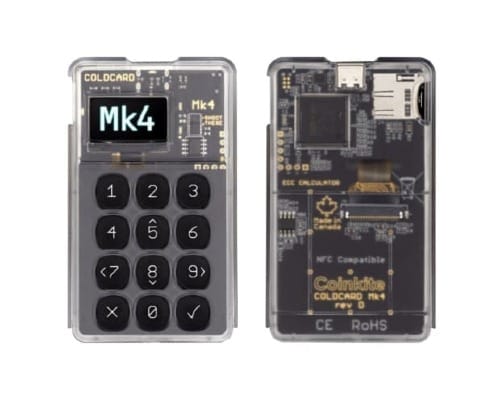

This comprehensive guide delves into the world of Bitcoin hardware wallets, essential for enhanced security in managing your Bitcoin.
Bitcoin hardware wallets are essential tools for securely managing your private keys. They offer a higher level of security compared to hot wallets by storing private keys offline. This article explores the functionality, best practices, and responses to common security concerns related to bitcoin hardware wallets.
Hardware wallets are physical devices designed to securely generate and store private keys. Private keys are critical for accessing and transacting with one's Bitcoin holdings. Unlike hot wallets, which are connected to the internet and more susceptible to online threats, hardware wallets keep private keys isolated from networked environments, significantly reducing the risk of unauthorized access through online attack vectors.
Recent discussions have highlighted vulnerabilities like the Go Fetch attack, specific to chips like Apple's M1 and M2 in Mac computers. Users are advised to watch for updates and consider their devices potentially compromised, reinforcing the need for hardware wallets.

When using hardware wallets, it is advised to assume that all computing devices could be compromised, including potential government backdoors in chips. Therefore, hot wallets should only contain minimal amounts of Bitcoin, while larger holdings should be secured in cold storage using hardware wallets.
A typical secure setup involves connecting a hardware wallet, like a Coldcard or Blockstream Jade, to a wallet interface such as Sparrow Wallet. This setup allows users to transact with the Bitcoin network while keeping private keys safely stored on the hardware device. Transactions are signed by the hardware wallet and then broadcasted to the network without exposing private keys to potentially infected computers.

The recovery seed is a series of words that acts as a master key for all associated Bitcoin addresses and transactions. It is imperative that users generate, memorize, and store their recovery seed in a secure, offline environment immediately after creating it with their hardware wallet.

Concerns about hardware wallets being compromised during delivery, known as man-in-the-middle attacks, have been addressed by reputable companies. These companies implement measures to provide evidence of tampering, ensuring users can verify the integrity of their devices upon receipt.
Regarding storage solutions for altcoins, it is suggested that users convert altcoins to Bitcoin for storage on a hardware wallet, emphasizing a preference for Bitcoin-only wallets due to the robust security and scrutiny they receive from the community.
Supporting channels that provide information on Bitcoin and hardware wallets is encouraged, as it helps spread knowledge and best practices. Engaging with the community through comments and discussions is also valuable, although users should be aware of platforms removing or censoring content.
Bitcoin hardware wallets are a cornerstone of secure private key management. Users are urged to follow best practices, stay informed about potential vulnerabilities, and choose reputable hardware devices to safeguard their investments. Through careful consideration and proactive security measures, individuals can effectively mitigate many of the risks associated with managing Bitcoin.